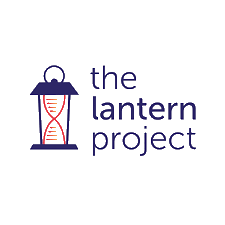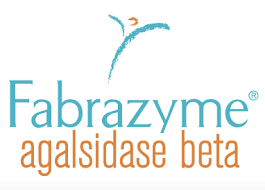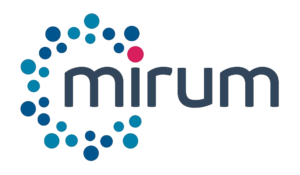Lysosomal Storage Diseases (LSDs) are a group of rare inherited metabolic disorders caused by defects in lysosomal function, typically due to enzyme deficiencies that lead to the accumulation of undegraded substrates within cells. This accumulation disrupts cell function and leads to varied clinical manifestations, depending on the specific disease and tissues involved. Common symptoms across different LSDs include organomegaly (enlargement of organs), bone deformities, neurocognitive impairment, and in some cases, early mortality. The spectrum of LSDs includes over 50 different disorders, such as Gaucher disease, Fabry disease, and Pompe disease, each linked to specific genetic mutations. Treatment options may include enzyme replacement therapy, substrate reduction therapy, and supportive care to manage symptoms and improve quality of life. Despite their rarity, LSDs represent a significant challenge in medical genetics and pediatrics, requiring specialized knowledge for diagnosis and management.


Sponsored genetic testing plays a pivotal role by providing free access to genetic analysis for individuals suspected of having lysosomal storage disorders (LSDs). This testing is essential for confirming diagnoses of complex conditions like Pompe, Fabry, and Gaucher diseases, among others. By identifying specific genetic mutations, the project aids in appropriate treatment planning and management, enhancing patient care and facilitating better outcomes through targeted therapies.
What is the Program?
Launched by Sanofi Genzyme with PerkinElmer Genomics (now Revvity Omics), The Lantern Project provides no-cost testing for patients whom physicians suspect may be suffering from Gaucher disease, Fabry disease, Pompe disease, mucopolysaccharidosis type I (MPS I), or acid sphingomyelinase deficiency (ASMD), also known as Niemann-Pick disease types A and B. Additionally, there is the option of an enzyme panel for seven mucopolysaccharidoses and a 105 gene panel for limb-girdle muscular dystrophies (LGMD) and other myopathies.
Eligibility requirements vary based on specific test:
Fabry Disease –
The Lantern Project consists of α-galactosidase A enzyme assay with reflex to GLA sequencing if deficient in males, GLA sequencing in females, and quantitation of lyso-Gl3 for both males and females. This program is for individual patients suspected of having Fabry disease via:
Gaucher Disease –
The Lantern Project* offers parallel testing of both enzyme assays with reflex to DNA sequencing of GBA or SMPD1 as appropriate, for individual patients with:
*This testing program is not appropriate for carrier testing as enzyme assay will not reliably detect carriers.
Pompe Disease –
The Lantern Project* consists of an acid α-glucosidase enzyme assay with reflex to GAA sequencing if deficient, and is for individual patients suspected of having Pompe disease via:
*This testing program is not appropriate for carrier testing as enzyme assay will not reliably detect carriers.
Gaucher Disease & Niemann – Pick Type A & B (ASMD) –
The Lantern Project* offers parallel testing of both enzyme assays with reflex to DNA sequencing of GBA or SMPD1 as appropriate, for individual patients with:
*This testing program is not appropriate for carrier testing as enzyme assay will not reliably detect carriers.
Mucopolysaccharidosis I (MPS I) & Other MPS Disorders –
The Lantern Project* offers two approaches to diagnosing MPS I: directed testing of α-L-iduronidase enzyme assay and IDUA sequencing, or testing for 7 MPS disorders via an enzyme panel for patients with:
*This testing program is not appropriate for carrier testing as enzyme assay will not reliably detect carriers
Limb-Girdle Muscular Weakness –
The Lantern Project* is for individual patients with:
*This testing program is not appropriate for carrier testing or for individuals with a family history of Pompe disease in whom a diagnosis of Pompe is considered. Also note that there is no age restriction on the use of this panel; the genes include disorders that encompass both pediatric and adult ages of onset. It is possible for pediatric patients to receive results that may not have immediate clinical implications. Patient/parental consent is highly recommended.

Package the patient sample, informed consent form, and test requisition form back into the test kit, and utilize the included pre-paid shipping label to return the kit to Revvity Omics for processing.

We are an innovative global healthcare company, driven by one purpose: we chase the miracles of science to improve people’s lives. Our team, across the world, is dedicated to transforming the practice of medicine by working to turn the impossible into the possible. We provide potentially life-changing treatment options and life-saving vaccine protection to millions of people globally, while putting sustainability and social responsibility at the center of our ambitions.
Sanofi is listed on EURONEXT: SAN and NASDAQ: SNY

FABRAZYME® (agalsidase beta) is an enzyme replacement therapy developed by Sanofi for the treatment of Fabry disease. This therapy is designed to replace the missing or deficient enzyme, alpha-galactosidase A, which helps to clear the buildup of globotriaosylceramide (GL-3) in cells, including those lining the blood vessels of the kidneys, heart, and skin. FABRAZYME is indicated for both adult and pediatric patients aged 2 years and older with confirmed Fabry disease. It has been proven to provide long-term efficacy and safety, significantly improving the management of this progressive and potentially life-threatening genetic disorder.





